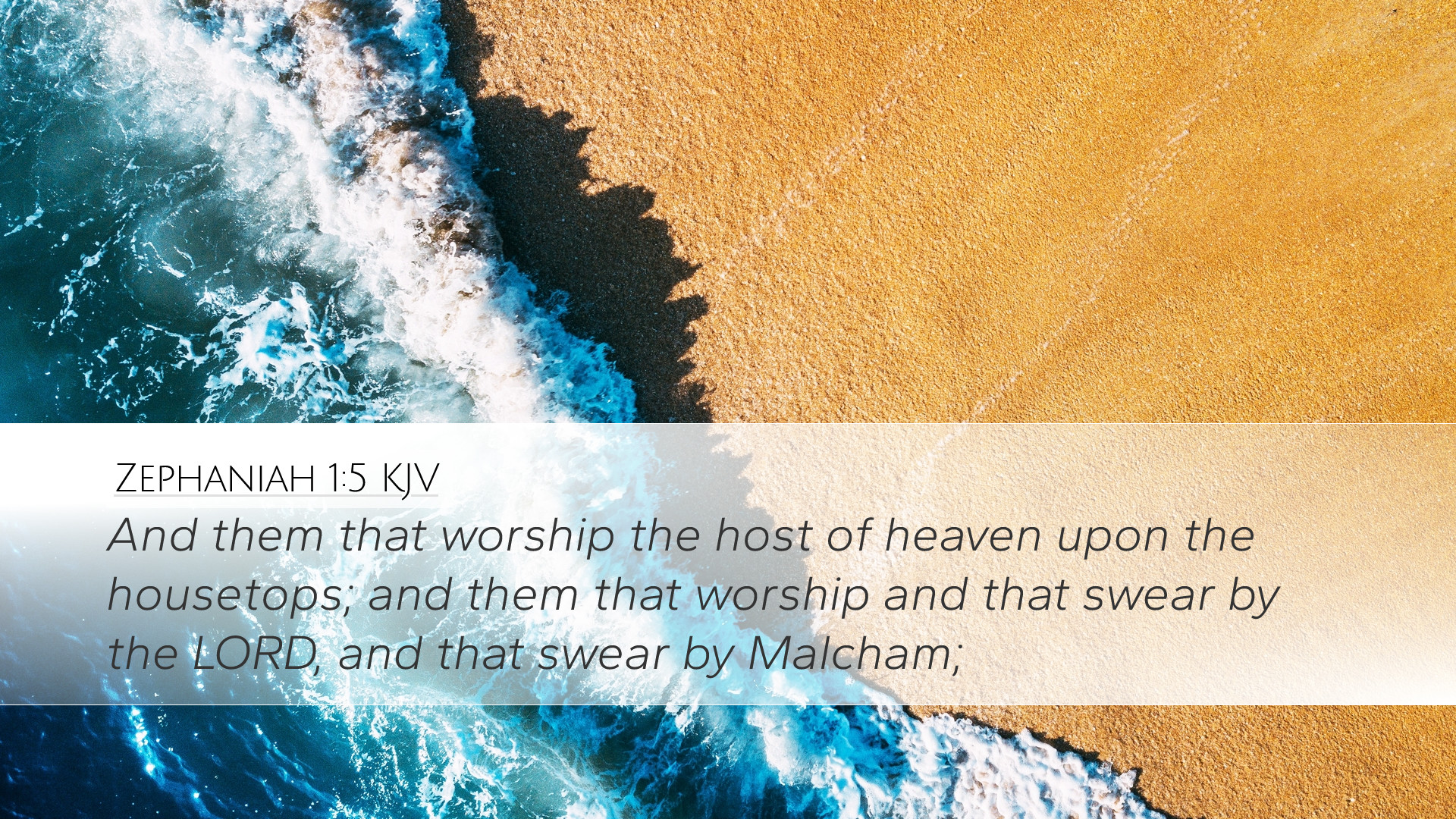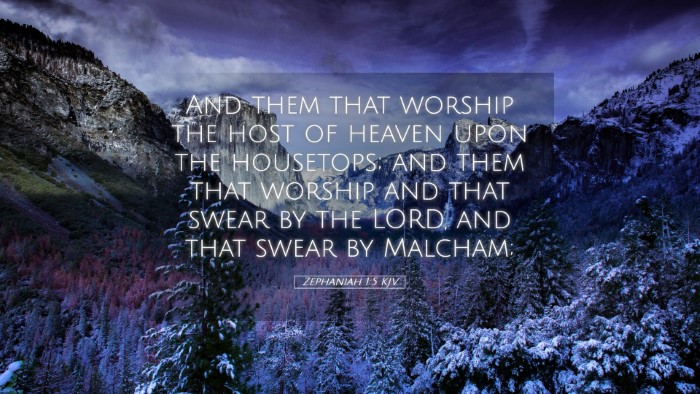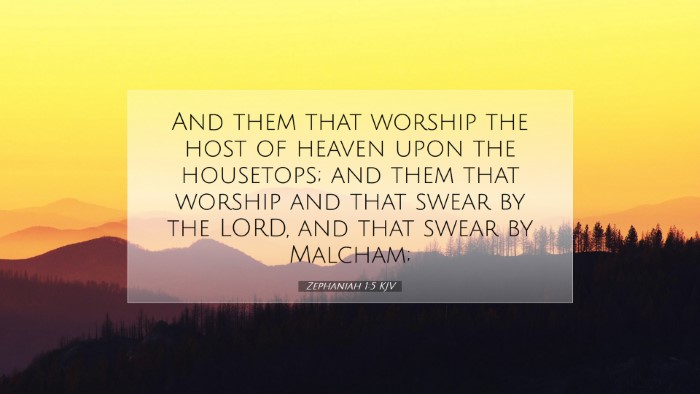Old Testament
Genesis Exodus Leviticus Numbers Deuteronomy Joshua Judges Ruth 1 Samuel 2 Samuel 1 Kings 2 Kings 1 Chronicles 2 Chronicles Ezra Nehemiah Esther Job Psalms Proverbs Ecclesiastes Song of Solomon Isaiah Jeremiah Lamentations Ezekiel Daniel Hosea Joel Amos Obadiah Jonah Micah Nahum Habakkuk Zephaniah Haggai Zechariah MalachiZephaniah 1:5
Zephaniah 1:5 KJV
And them that worship the host of heaven upon the housetops; and them that worship and that swear by the LORD, and that swear by Malcham;
Zephaniah 1:5 Bible Commentary
Commentary on Zephaniah 1:5
Verse: "And them that worship the host of heaven upon the housetops; and them that worship and that swear by the Lord, and that swear by Malcham."
Introduction
The book of Zephaniah stands as a significant prophetic work that addresses the impending judgment upon Judah and the surrounding nations. Zephaniah, a prophet of the 7th century BC, calls the people back to a true understanding of worship and allegiance, especially in the face of prevalent idolatry. In Zephaniah 1:5, the prophet highlights two groups of people: those who engage in foreign worship and those who attempt to combine the worship of Yahweh with pagan practices.
Analysis of the Text
The Worship of the Host of Heaven: The reference to "the host of heaven" indicates a clear abomination in the sight of God. This phrase typically denotes the celestial bodies that were objects of worship among the Israelites and neighboring nations.
- Context of Idolatry: Matthew Henry points out that the idolatry on the rooftops signifies a public and brazen act of defiance against God’s statutes. Worshiping celestial bodies was a common practice, influenced by surrounding paganism.
- Publicly Acknowledged Sin: Albert Barnes emphasizes the significance of worshiping on the rooftops; it reveals an openness about sin that disregards God's commandments.
- Pagan Practices and Consequences: Adam Clarke notes that such practices reflect a deep-seated corruption within the community, which ultimately brings about the prophecy of judgment.
The Blending of Cults
Swearing by the Lord and Malcham: This phrase introduces a further layer of confusion within the worship practices of the people. It denotes a syncretism that undermines the purity of worship due to mixing the sacred with the profane.
- Malcham's Role: Malcham is thought to be a deity of the Ammonites, associated with moral and ethical corruption, including child sacrifice. This reference signifies the grave dangers of mixing true worship with such practices.
- False Allegiance: Henry elucidates that swearing by both the Lord and Malcham demonstrates a lack of true allegiance; it shows an attempt to serve both God and idols—a position that is explicitly condemned by the Scriptures.
- Desires for Prosperity: Clarke posits that this duality in worship often arises from the false belief that one can achieve personal gain while still maintaining a veneer of righteousness before the Lord.
Theological Implications
The verse serves as a poignant reminder of the exclusive nature of worship demanded by Yahweh. Combining the worship of the true God with false idols is not just misguided; it represents a fundamental misunderstanding of the nature of God.
- Monotheism vs. Polytheism: The text reinforces the Jewish principle of monotheism. The inclusion of Malcham in the discussion reflects the polytheistic tendencies that threaten the essence of Judaism.
- The Danger of Pragmatism: This verse speaks directly to the modern church, where pragmatism can sometimes overshadow pure theology. There is a temptation to compromise with cultural trends for the sake of relevance.
- Call to Holiness: Ultimately, this verse calls for a return to holiness, as God desires an undivided heart from His people. This concept is pervasive throughout the writings of the prophets and should resonate with all believers today.
Conclusion
In Zephaniah 1:5, we find a critical challenge that continues to be relevant for contemporary faith communities. The urge to engage with culture must not lead believers to compromise their devotion to God. Through a careful reflection of this passage and its commentaries, pastors, students, and scholars are afforded insight into the necessity of maintaining a pure and unadulterated worship that fully recognizes the Lord as the sole deity worthy of allegiance.


